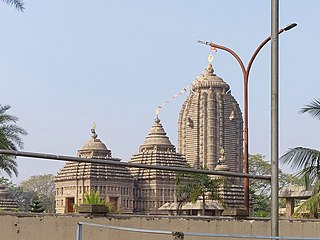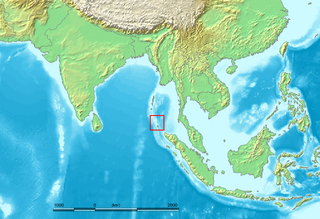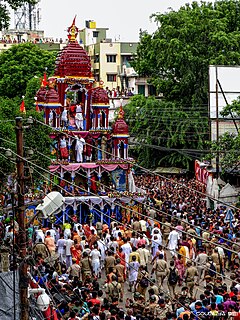 W
WDanish India was the name given to the colonies of Denmark in India, forming part of the Danish colonial empire. Denmark–Norway held colonial possessions in India for more than 200 years, including the town of Tharangambadi in present-day Tamil Nadu state, Serampore in present-day West Bengal, and the Nicobar Islands, currently part of India's union territory of the Andaman and Nicobar Islands. The Danish and Norwegian presence in India was of little significance to the major European powers as they presented neither a military nor a mercantile threat. Dano-Norwegian ventures in India, as elsewhere, were typically undercapitalised and never able to dominate or monopolise trade routes in the same way that British, French, and Portuguese ventures could.
 W
WBalasore or Baleshwar is a city in the state of Odisha, about 194 kilometres (121 mi) north of the state capital Bhubaneswar and 152 kilometres (94 mi) from Kolkata, in eastern India. It is the largest city of northern Odisha and the administrative headquarters of Balasore district. It is best known for Chandipur beach. The Indian Ballistic Missile Defense Program's Integrated Test Range is located 18 km south of Balasore.
 W
WBalasore District also known as Baleswar District or Baleshwar District, is an administrative district of Odisha state in eastern India. Balasore is one of the coastal Districts of Odisha. It lies on the northernmost part of the state. It was a part of the ancient Kalinga which later became a territory of Tosali or Utkal. The name Balasore is recognised from the Persian word BALA-E-SHORE which means “TOWN IN THE SEA”.
 W
WThe Bungalow on the Beach is a 17th-century Danish colonial house which has belonged to the Governor of Danish India, who was styled Opperhoved, and after their exit in 1845, to the British administrator of the colony. Built in the 18th century, opposite the Fort Dansborg, by the Danish East India Company in what was once a pepper trading post of Tranquebar, now known as Tharangambadi, in Tamil Nadu, India. Tranquebar is a Danish term and came from the native Tamil word Tarangambadi, meaning 'place of the singing waves'.
 W
WThe Coromandel Coast is the southeastern coast region of the Indian subcontinent, bounded by the Utkal Plains to the north, the Bay of Bengal to the east, the Kaveri delta to the south, and the Eastern Ghats to the west, extending over an area of about 22,800 square kilometres. Its definition can also include the northwestern coast of the island of Sri Lanka. The coast has an average elevation of 80 metres and is backed by the Eastern Ghats, a chain of low, flat-topped hills.
 W
WThe Danish East India Company refers to two separate Danish-Norwegian chartered companies. The first company operated between 1616 and 1650. The second company existed between 1670 and 1729, however, in 1730 it was re-founded as the Asiatic Company.
 W
WOve Gjedde was a Danish nobleman and Admiral of the Realm (Rigsadmiral). He established the Danish colony at Tharangambadi and constructed Fort Dansborg as the base for Danish settlement. He was a member of the interim government that followed the death of King Christian IV and which imposed restrictions (Haandfæstning) on his successor King Frederick III.
 W
WThe Nicobar Islands are an archipelagic island chain in the eastern Indian Ocean. They are located in Southeast Asia, 150 km north of Aceh on Sumatra, and separated from Thailand to the east by the Andaman Sea. Located 1,300 km southeast of the Indian subcontinent, across the Bay of Bengal, they form part of the Union Territory of Andaman and Nicobar Islands, India.
 W
WSerampore is a city of Hooghly district in the Indian state of West Bengal. It is the headquarter of the Srirampore subdivision. It is a part of the area covered by Kolkata Metropolitan Development Authority (KMDA). It is a pre-colonial city on the west bank of the Hooghly River. It was part of Danish India under the name Frederiknagore from 1755 to 1845.
 W
WSt. Olav's Church is a Catholic church. It is located in Serampore, West Bengal.